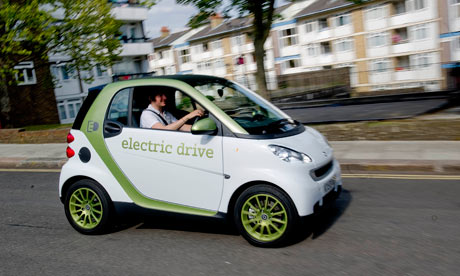British towns and cities are braced for a rapid rise in traffic congestion when the lockdown eases on Monday after figures showed many of the countries that have already lifted restrictions have seen truck and car use rise above their pre-coronavirus levels.
Pollution levels are expected to soar and road deaths increase as cars crowd back on to roads to get to shops, zoos and workplaces opening for the first time since 23 March.
Governments across the world have called for workers to use public transport only if they have no alternative, massively increasing car use where lockdown restrictions have eased.
City mayors warned that increases in traffic congestion are already under way and likely to follow the path set by Stockholm and Wuhan, where car use is already above previous peak levels.
Other European cities, including Paris and Berlin, have experienced a rapid jump back towards average levels following an easing of restrictions.
According to a congestion index compiled by satnav provider TomTom, Paris’s streets would regularly hit a congestion level of 100% before the lockdown, which means it would take double the time to make the journey than on an empty road.
Last week, the congestion level in the French capital almost hit 60% , while Stockholm has regularly seen its rating jump above its usual 80% peak. Sweden has kept most of its economy open during the pandemic and is seen as the best guide to car use by other cities.
The mayor of London, Sadiq Khan, said the capital had already seen a rise in traffic levels. Figures from Transport for London show that at the peak of the lockdown at the end of March, traffic was at 50% of normal levels. By mid-May, that had climbed to 68% and by the start of June had reached 78%.
Restrictions to tackle the pandemic have led to a huge drop in road traffic and a fall in air pollution of up to 60% in parts of the UK. A YouGov poll commissioned by Greenpeace UK last month found that 71% of people were concerned about the possibility of air pollution returning to pre-lockdown levels once restrictions are lifted.
Peak levels of traffic congestion in the Birmingham and Wolverhampton area, which form the core of the West Midlands combined authority, peaked at about 75% prior to the lockdown, before dropping to 20% over the past three months. But an average measure, which was 28% last year, has crept up from 8% in April to 11% over the last week.
Andy Street, the mayor of the West Midlands, said: “After three years of improving our public transport offering in the West Midlands and tempting people out of their cars, it is gutting to now have to tell these same people to only travel if it is essential, and … to start driving again.”
But public transport remained the answer to better city transport, he said, adding: “Air pollution is such a significant factor in the climate emergency we are facing, and we are only going to be able to tackle this in the longer term if we get people out of their cars and on to public transport, two wheels, and out using their two feet.”
The government announced last month that it would spend £250m as part of a £2bn boost to walking and cycling, enabling local authorities to pay for “pop-up” infrastructure to cater for physical distancing during lockdown.
Local authorities have spent some of the funds, but plans have been hampered by disputes between city mayors and No 10. Last week, Greater Manchester mayor Andy Burnham said cities were rapidly running out of money as they tried to cope with the extra costs of the pandemic.
A spokesperson for Khan said: “Sadiq doesn’t want to replace one health crisis with another, and he is determined that our city’s recovery from coronavirus will be clean, green and sustainable.”











